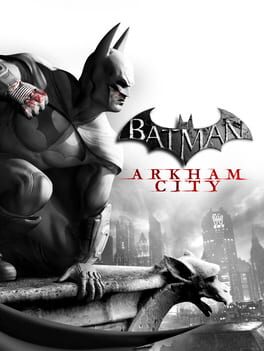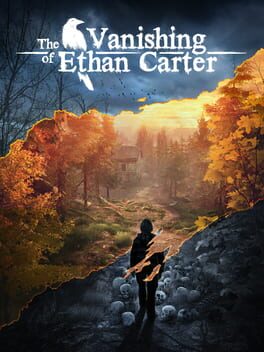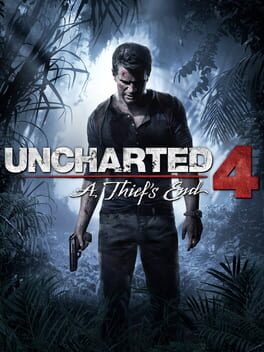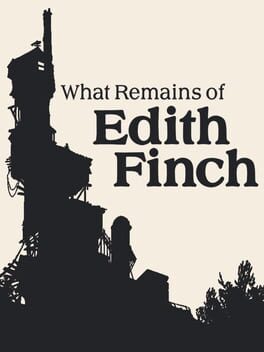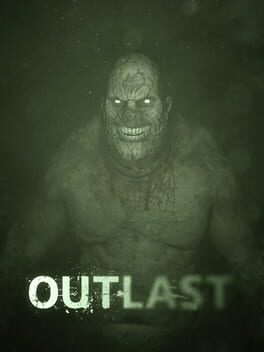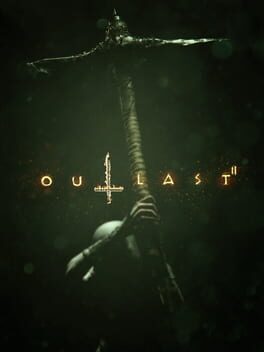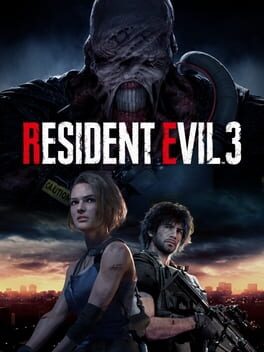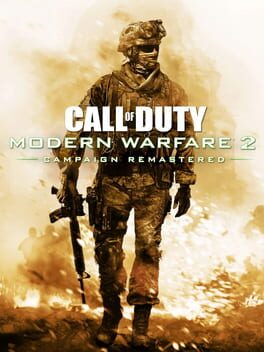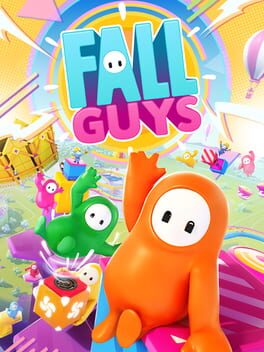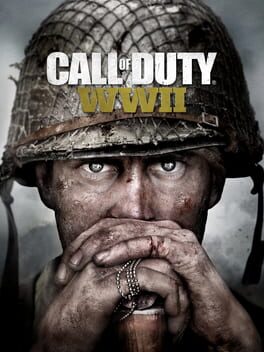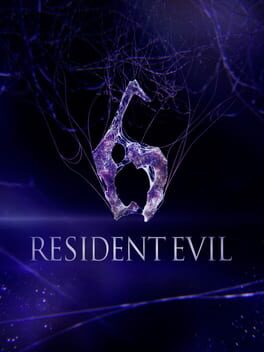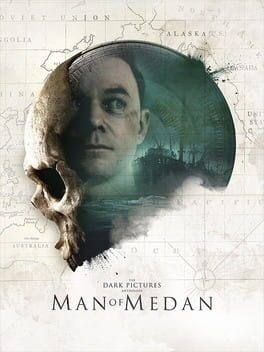pulpfuertes
2011
A tedious Greatest Hits collection of Batman villains and shallow mythology encased in an impressive tech showcase. Without inherent context there is no poignancy so as a result the plot progression is hollow, mostly existing to pander to focus-tested players and comic book fans. For all of its issues at least Asylum was efficient gameplay wise (combat here remains stiff) and had a focused narrative. For not having a lengthy campaign it still took me weeks to power through this due to the bland mission design and how inconsequential the plot felt. The open world here may be refreshingly succinct compared to what we get nowadays but it's nonetheless crammed with the endless noise of radio chatter, objective markers, and menial clutter to get distracted with. It's an overbearing mother of a game that never learns to shut up and allow the player to soak in the visually rich atmosphere without having to scream it in our face and hold our hand in every which way. As much as I despise the term "style over substance" I feel as though I can can truthfully apply it here. It's a massively ambitious AAA title for its time but most of that ambition derives from surface level attributes that feel as thin as the ice that Batman treads on. Something that ultimately skirts on sheer mediocrity.
Idyllic, eerie bliss. It has a steady learning curve in understanding the rhythm but it's captivating to witness unfold for that reason. A game that hints at your objective but never outright gives you the answer. Voice talents are somewhat lacking and a late game section (if you've played it you know) felt out of place but the radiant visuals and soundtrack do more than enough to compensate for any stiffness in execution. There's plenty boldness to be found here and the game knows for the most part when to curb back and allow the player's imagination to take hold.
Come for the breathtaking vistas and immaculately detailed environments, stay for the fascinating probing of the delusions of grandeur from the American middle aged man and the rousing hijinx that ensue. Quite easily the strongest in the franchise, something I wasn't expecting at all, thanks to quality of life improvements with the shooting/combat and extrapolation of core narrative elements. It's such a fluid and coherent experience that I was left agape by how much genuine fun I was having traversing the comprehensively decorated settings and navigating the vast arenas to mark my enemies. While it doesn't pack the punch of Last of Us' narrative, by smoothness of execution this has it beat in spades despite the slight bloat in the latter half. Structurally, this is Naughty Dog's most ambitious work thus far (when this was written in 6/3 at least). Borrowing from Last of Us' novelistic approach, the first half of this weaves in flashbacks and stuffs an immense amount of information within the first several hours that leaves the player's head spinning by how quickly it progresses without skipping a beat. Once it slows down leading into the second half in Libertalia, we are presented with some of the finest character work Naughty Dog has done with the near crumbling and renewal of Nathan and Elena's marriage, acting as the true climax to the story.
This section is nuanced in how it employs a hushed sentimentality in lieu of outright melodrama and it's bold to see the throes of domesticity being engaged with so explicitly. This is a game less so about the ramifications of violence (which is ideally where I'd wanted the series to mature but LOU has us covered there) than it is about a mid-life crisis on candy coated adrenaline. Ditching the supernatural elements of the previous games, this entry follows an innate obsession with capturing glory as a means of validating existence and the subsequent thrills of "adventure" in all its forms that arise from that yearning. Following Last of Us' acclaim, some of this also feels like a meta commentary on "good fortune" and attaining humility in the midst of resplendent yet dilapidated splendor (exploring Libertalia in particular). Its thematic value is based in Nathan's relationships with others and how his actions and lack of honest communication potentially jeopardize these binding ties. The stakes are entirely emotional and surpass any idea of "death" that the franchise can conjure up at this point. Throughout the series Nathan's allies have been concerned for his mental well being and not Nate himself, who continued his adventuring without any thought to the possible harmful outcome.
Here, his brother Sam is an outright enabler of his shitty habits and Sully/Elena are subsequently exhausted by these antics by this point. Everybody here is just tired and the game suggests that the boisterous cartoons of yesterday have run their course and must be buried for good. The subjects are now drawn to the pull of reality and feel the sting of mortality with every push forward. While it's valuable to see Naughty Dog finally take the time to deeply explore any semblance of themes in these games, it doesn't get quite as complicated and messy as I'd hope; specially since it deals with the consequences of emotional duress. The exploration of these ideas is as broad as they come but it's okay. For what it is, a tour-de-force blockbuster epic that adopts that term to its fullest capacity, it intensely satisfied me and assisted in helping me escape from the reality of the turbulent world we live in now. At least for the 15 hours it took to complete its sweeping campaign. Despite my disappointment with the previous entries and my hesitance in approaching this, that's all I could ask for.
This section is nuanced in how it employs a hushed sentimentality in lieu of outright melodrama and it's bold to see the throes of domesticity being engaged with so explicitly. This is a game less so about the ramifications of violence (which is ideally where I'd wanted the series to mature but LOU has us covered there) than it is about a mid-life crisis on candy coated adrenaline. Ditching the supernatural elements of the previous games, this entry follows an innate obsession with capturing glory as a means of validating existence and the subsequent thrills of "adventure" in all its forms that arise from that yearning. Following Last of Us' acclaim, some of this also feels like a meta commentary on "good fortune" and attaining humility in the midst of resplendent yet dilapidated splendor (exploring Libertalia in particular). Its thematic value is based in Nathan's relationships with others and how his actions and lack of honest communication potentially jeopardize these binding ties. The stakes are entirely emotional and surpass any idea of "death" that the franchise can conjure up at this point. Throughout the series Nathan's allies have been concerned for his mental well being and not Nate himself, who continued his adventuring without any thought to the possible harmful outcome.
Here, his brother Sam is an outright enabler of his shitty habits and Sully/Elena are subsequently exhausted by these antics by this point. Everybody here is just tired and the game suggests that the boisterous cartoons of yesterday have run their course and must be buried for good. The subjects are now drawn to the pull of reality and feel the sting of mortality with every push forward. While it's valuable to see Naughty Dog finally take the time to deeply explore any semblance of themes in these games, it doesn't get quite as complicated and messy as I'd hope; specially since it deals with the consequences of emotional duress. The exploration of these ideas is as broad as they come but it's okay. For what it is, a tour-de-force blockbuster epic that adopts that term to its fullest capacity, it intensely satisfied me and assisted in helping me escape from the reality of the turbulent world we live in now. At least for the 15 hours it took to complete its sweeping campaign. Despite my disappointment with the previous entries and my hesitance in approaching this, that's all I could ask for.
2011
2001
It's hard for me to articulate why this game is as formidable as it is. To describe the complete effect is to delve into my own personal regrets and the machinations of my traumas and go on for pages about the inherent weaknesses in our primal behavior and instinctive response to harmful external stimuli. This is at once a distortion of patriarchal establishments and institutions and also a wretchedly grim portrayal of psychological trauma. The world here is an artificially manifested microcosm of these ideas falling into gradual deterioration and acts as an encompassing amalgamation of the developer's influences. Through the presence of homage, this comes out as something dazzlingly singular for the medium. A game that progressively self-destructs alongside its broken protagonists, its mechanics deliberately clunky and devoted to inducing sheer panic and anxiety in the player. Less so consistently terrifying (though it definitely can be lol) than it is utterly consuming; its murky visual design, voice acting, and Yamaoka's crepuscular soundtrack infecting every facet of my life and coercing me to reflect on my own personal shortcomings as a person.
In one way or another I spent every waking moment in the week I played this game in 'Silent Hill'. It stands as a cruel embodiment of our fears and the insecurities that come with how we view our self-image but it is also a call for judgment for the sins we commit against each other. Very rarely does a game engage so forcibly on the lonely nature of depression or the assaulting impact that guilt and abuse can have and how these states of mind are seeded by traumatic memories. The result is a punishing and overwhelming experience that left me awake at night thinking over its thematic implications, its stilted gameplay haunting my every move during the day, and in my dreams in awe of its intricacies and how brilliantly it grounds its images and sounds into the player's conscious. Everything here is faithful to the overarching atmosphere and it's something that's made me question the credibility of a "perfect grade" for a game. For an object of beauty so outwardly flawed by design it's as luminescent as something like this can get.
In one way or another I spent every waking moment in the week I played this game in 'Silent Hill'. It stands as a cruel embodiment of our fears and the insecurities that come with how we view our self-image but it is also a call for judgment for the sins we commit against each other. Very rarely does a game engage so forcibly on the lonely nature of depression or the assaulting impact that guilt and abuse can have and how these states of mind are seeded by traumatic memories. The result is a punishing and overwhelming experience that left me awake at night thinking over its thematic implications, its stilted gameplay haunting my every move during the day, and in my dreams in awe of its intricacies and how brilliantly it grounds its images and sounds into the player's conscious. Everything here is faithful to the overarching atmosphere and it's something that's made me question the credibility of a "perfect grade" for a game. For an object of beauty so outwardly flawed by design it's as luminescent as something like this can get.
The manipulative nature of the narrative and how it's told is entirely the point. Legacy as a manufactured curse. The player explores a symbolic mausoleum dedicated to the grief felt over generations, weaponized to induce and propagate the cycle of mental illness and the futility of that struggle. It's uncompromisingly pernicious, containing laser focus and wonderfully composed sequences of death played out through the lens of magical realism. I adore it for its relaxing if off-putting features even if it reeks with the stench of utter defeatism.
2013
Better than how I remember in some ways but still intermittently tedious and loses momentum because of its monotonous encounters. The moment the player dies the first time, any brewing tension is sucked away and what's left is studying the level design and finding "crafty" ways to escape your enemies (mostly ridiculously running around in large circles until the AI forgets you exist). There is something taut about this gameplay loop but it doesn't feel nearly as fleshed out as it should and for something so short to feel as long as it is makes for a disappointing experience. The game is a cheap haunted house attraction and for the moments it works it delivers some startlingly effective jolts. Playing half of this with a headset highlighted how effectively the developers set up particular scares. It's just one of those objects of pleasure where if one approaches it with the mindset of it being complete surface level excitement you'll come away somewhat satisfied (the whiplash of that third act is still a mess though) but the closer they look they'll see a cynical machine operated by cogs that don't quite fit the grander scheme it yearns for.
Vengeance as a preordained impulse. Ellie exists as an emblem of trauma and the player as the casual observer to her building pain and guilt, only extending a hand to act out her violent and reactionary compulsions through button prompts and extensive combat sections. It's horrifying to witness and partake in, but bleakly honest to how rage can drive a person to the limit of their foundational moral standards. The game doesn't force the player through these tribulations as punishment but to underscore the dissonance between how we perceive a character and what they want and how ultimately the player is rendered powerless against the sheer density of said character's desire to fulfill their own needs. Ellie, as her character is expressed by her creators, essentially is an unstoppable force and for better and worse the player is seemingly culpable in the rampage that follows from years of gathered wounds and the traumatic event that sparks the fire. It's difficult to fully accept how this unwavering dynamic shapes this sprawling, brutal, and droning depiction of the cyclical chain of violence and the endless ripples that emanate but the outcome is a streamlined, urgent, and anxious experience that bravely tests patience and comfort levels.
This game is minutely orchestrated to make us feel the weight of our actions however it's not a shallow critique of the player or the characters as many have labeled it but rather acts as a vehicle for perceptive empathy, where through exploration of its dense cityscape and weaving through religious/militant societies, we form our own thematic narratives of what it means to forgive and to understand what drives a person to animalistic madness in a world beyond saving. You get out of this game what you put in. It can be manipulative and cynical, one that tests the line between acceptably nuanced and crudely exploitative. It's in the viciously realized second half where players will either be moved by the innate thesis of what Druckmann and his team have patiently built up or will emotionally tap out and be disgusted by the extent of which they have chosen to take its nihilism. Once the game barrels towards its unyielding finale, I found myself exhausted but utterly immersed. As the executor of Ellie's monstrosity I had become a mere shell of all the atrocity I had committed throughout the game. As the hypnosis of obsession took hold, it rang in my mind the wailing of grief and shrieks of pain I caused and the haunting stillness of Seattle left in disarray.
On a spiritual level I can understand the disdain towards this. In its searing closing set-piece I found it painfully difficult to go through with the final actions and considered stepping away, out of fear that the entire thematic arc I built up in my mind would fall apart. I was at an emotional impasse in which the developer's concluding decisions skirted between satisfying the majority and sacrificing my good will or coming through with the grand ambition from the rest of the game for something special. For me, they made the right choices in the end. This is a massively self indulgent and exposed work of art not unlike how a filmmaker such as Von Trier or Bergman frame their characters as thematic devices; tools to enact the verbosity of human savagery and suffering. On top of that the rampant crunch culture that infects the industry at large reared its ugly head as I marveled at the masterfully designed visual compositions, intense attention to detail of the city itself, and the peerless facial animations that enhance the already terrific cast (Bailey and Johnson give two of the best performances of the year).
This game, to many's disappointments (and my own initially), ruptures the brilliant ambiguity of the first's ending. Why this works is because this is no longer about whether or not a cure is possible or the moral cost of such a cure, but bluntly asks if this is a world deserving of a cure. Despite humanity persisting through resourcefulness and the binds of community it remains eternally tied to the bonds of systemic oppression. The true villain is the idea that we can ever "go back" to the normality that defined past generations' idea of capitalistic order. Chasing the notion of the "American Dream" amidst the rubble of our destruction. Reality is, as showcased by the divide between communities, nothing has changed. Nature has just taken control and has chosen to wipe away the debt. Flawed ideologies are still rampant but are now weaponized by the primal instincts to survive at all costs. Part II acts as a possessed refraction to the previous entry's concept of the perseverance of hope amidst pastoral landscapes. The first game had giraffes and a colorful "road trip" structure to hammer in the expansive nature of Ellie and Joel's journey. In contrast, this is a pitifully inert plateau crowned by the aching consequences that acting from ardent and undying love alone can bring. The rotted, stinking corpse of aforementioned giraffe.
Anyways, most certainly will be game of the year. I both dread and anticipate the inevitable replay on PS5. I doubt anything from 2020 in all mediums of art (film, tv, music, etc) will effect me as deeply and irrevocably as this.
This game is minutely orchestrated to make us feel the weight of our actions however it's not a shallow critique of the player or the characters as many have labeled it but rather acts as a vehicle for perceptive empathy, where through exploration of its dense cityscape and weaving through religious/militant societies, we form our own thematic narratives of what it means to forgive and to understand what drives a person to animalistic madness in a world beyond saving. You get out of this game what you put in. It can be manipulative and cynical, one that tests the line between acceptably nuanced and crudely exploitative. It's in the viciously realized second half where players will either be moved by the innate thesis of what Druckmann and his team have patiently built up or will emotionally tap out and be disgusted by the extent of which they have chosen to take its nihilism. Once the game barrels towards its unyielding finale, I found myself exhausted but utterly immersed. As the executor of Ellie's monstrosity I had become a mere shell of all the atrocity I had committed throughout the game. As the hypnosis of obsession took hold, it rang in my mind the wailing of grief and shrieks of pain I caused and the haunting stillness of Seattle left in disarray.
On a spiritual level I can understand the disdain towards this. In its searing closing set-piece I found it painfully difficult to go through with the final actions and considered stepping away, out of fear that the entire thematic arc I built up in my mind would fall apart. I was at an emotional impasse in which the developer's concluding decisions skirted between satisfying the majority and sacrificing my good will or coming through with the grand ambition from the rest of the game for something special. For me, they made the right choices in the end. This is a massively self indulgent and exposed work of art not unlike how a filmmaker such as Von Trier or Bergman frame their characters as thematic devices; tools to enact the verbosity of human savagery and suffering. On top of that the rampant crunch culture that infects the industry at large reared its ugly head as I marveled at the masterfully designed visual compositions, intense attention to detail of the city itself, and the peerless facial animations that enhance the already terrific cast (Bailey and Johnson give two of the best performances of the year).
This game, to many's disappointments (and my own initially), ruptures the brilliant ambiguity of the first's ending. Why this works is because this is no longer about whether or not a cure is possible or the moral cost of such a cure, but bluntly asks if this is a world deserving of a cure. Despite humanity persisting through resourcefulness and the binds of community it remains eternally tied to the bonds of systemic oppression. The true villain is the idea that we can ever "go back" to the normality that defined past generations' idea of capitalistic order. Chasing the notion of the "American Dream" amidst the rubble of our destruction. Reality is, as showcased by the divide between communities, nothing has changed. Nature has just taken control and has chosen to wipe away the debt. Flawed ideologies are still rampant but are now weaponized by the primal instincts to survive at all costs. Part II acts as a possessed refraction to the previous entry's concept of the perseverance of hope amidst pastoral landscapes. The first game had giraffes and a colorful "road trip" structure to hammer in the expansive nature of Ellie and Joel's journey. In contrast, this is a pitifully inert plateau crowned by the aching consequences that acting from ardent and undying love alone can bring. The rotted, stinking corpse of aforementioned giraffe.
Anyways, most certainly will be game of the year. I both dread and anticipate the inevitable replay on PS5. I doubt anything from 2020 in all mediums of art (film, tv, music, etc) will effect me as deeply and irrevocably as this.
2017
As clumsily executed as it is transgressively playful. Nonetheless remains an intensely harrowing experience headlined by breathtaking sound work and a deliciously grimy visual framework. It's a striking showcase in visceral, hard hitting scares even if it doesn't really have any impact beyond the moment. There are stretches of masterful horror craft here (the mines, the river, blood rain, and the school) but there are more than enough traces of disappointing design choices (wonky level layout, tedious notes/lore bits, useless microphone option, janky controls) that only elicit frustration as the game progresses. For something built and reliant on thrilling chases and an encompassing dread filled atmosphere, issues like those can be detrimental. While it thankfully doesn't think itself to be a deeply profound statement on the innate hypocrisy of religious institution, there is something amusing about a game like this treading into those waters with such earnest pulpy flair. It's certainly a special game; one I could see myself calling great at some point.
2020
Pure, explosive Cameron-esque bombast and I adored so much of it. An absolute shockwave of zombie spectacle and pulpy bad-assery. Wish some parts were better fleshed out (such as Carlos) and that certain gameplay elements werent recycled (innovation is certainly lacking here which feels out of character for the franchise) but for something that comes together this effectively and maintains a level stability for its entire duration I can't complain too much.
2020
Short lived enjoyment. Refreshingly simple to the point of tedium. There’s a charm to that but after playing for about ten hours haven’t felt the urge to return to it in a minute. Good enough though in the moment and I look forward to the inevitable updates to see how they innovate from this base model.
2017
Stale masculine power fantasy without any required pulp or rarely a thrill to be found. Struggles with identifying between its cartoonishly ridiculous antics and its grossly exploitative sentimentalism ("heroic acts", anything involving the squad perk nonsense). Insufferable for the most part but somehow more tolerable than MW2, even if in the slightest. The plane stuff was fun and the French Revolution mission was refreshing, I guess.
2012
“We’re beyond sympathy at this point. We’re beyond humanity.”
A maximalist, sprawling epic and a disgustingly under-appreciated entry in this increasingly transforming franchise. Packed storylines weave in and out of various perspectives and connect with glowing ferocity, gameplay and thematic elements from past entries are remixed and redefined for a prime convergence of tradition and innovation, and it subliminally sets the groundwork for what would come with the remakes and Biohazard. On top of just being an absolute joy (for the most part) to work through, with bombastic set pieces and crisp gunplay and ridiculous one liners and silliness to be found in every corner, it’s downright the most wistfully romantic and optimistic the franchise has ever been. There’s little to no regard for nuance and restraint and 6 is all the stronger and more singular for that. While it is packed with fascinating vision and consistent creativity in its visual design and structure, it lacks cohesive direction as it feels like a diverse hodgepodge of all the classic Resident Evil tropes while attempting to lay foundation for something new. It’s the expected progression from what 4 and 5 offered even it lacks the compact polish that those two had. However for something of this massive caliber it should be anticipated that it occasionally drops the ball in pacing or makes some of the most awkward decisions I’ve seen in a AAA title. It’s a pioneering experience that feels otherwise unprecedented and yet released in a time when endless content reigned supreme. There’s a sincerity and enthusiasm here to impress that transcends the faux-profound pretensions of what we see nowadays more often than not. Resident Evil 6 is proud of itself and deeply loving of its history, blemishes and all, and chooses to take no prisoners in the process of whisking the player on their grandest and most reckless expression of humanity’s endurance in the throes of seemingly unbeatable odds.
A maximalist, sprawling epic and a disgustingly under-appreciated entry in this increasingly transforming franchise. Packed storylines weave in and out of various perspectives and connect with glowing ferocity, gameplay and thematic elements from past entries are remixed and redefined for a prime convergence of tradition and innovation, and it subliminally sets the groundwork for what would come with the remakes and Biohazard. On top of just being an absolute joy (for the most part) to work through, with bombastic set pieces and crisp gunplay and ridiculous one liners and silliness to be found in every corner, it’s downright the most wistfully romantic and optimistic the franchise has ever been. There’s little to no regard for nuance and restraint and 6 is all the stronger and more singular for that. While it is packed with fascinating vision and consistent creativity in its visual design and structure, it lacks cohesive direction as it feels like a diverse hodgepodge of all the classic Resident Evil tropes while attempting to lay foundation for something new. It’s the expected progression from what 4 and 5 offered even it lacks the compact polish that those two had. However for something of this massive caliber it should be anticipated that it occasionally drops the ball in pacing or makes some of the most awkward decisions I’ve seen in a AAA title. It’s a pioneering experience that feels otherwise unprecedented and yet released in a time when endless content reigned supreme. There’s a sincerity and enthusiasm here to impress that transcends the faux-profound pretensions of what we see nowadays more often than not. Resident Evil 6 is proud of itself and deeply loving of its history, blemishes and all, and chooses to take no prisoners in the process of whisking the player on their grandest and most reckless expression of humanity’s endurance in the throes of seemingly unbeatable odds.
Bargain bin film of the week level stuff. Kinda cynical in that way but it’ll be interesting to see where these games go as they continue to refine and find ways to broaden its interactive horror gameplay. What we have here is not nearly as exciting to play as Until Dawn but the promise of more innovative features is there despite shoddy pacing and stuttering tech performance. The cast isn’t as dynamic but I still found my heart pumping in some of the chase sequences and relentless QTEs. There’s something about what this brand of games offer that fascinate me and keep me coming back. Was hoping for more diversity in how your choices and actions (or lack thereof) based on curiosity and artificial recklessness would impact the character growth and overall consequences. There should definitely be more fluidity but that would require a lot more development time. Its predecessor served as a base model for this but is somehow more complex and challenging. I’ll continue to support this franchise of horror gaming because overall its a medium that has so much potential to churn out strong, psychologically taut material. What‘s here though is infrequently effective jump scares and C-grade storytelling laced with half baked mechanics.
